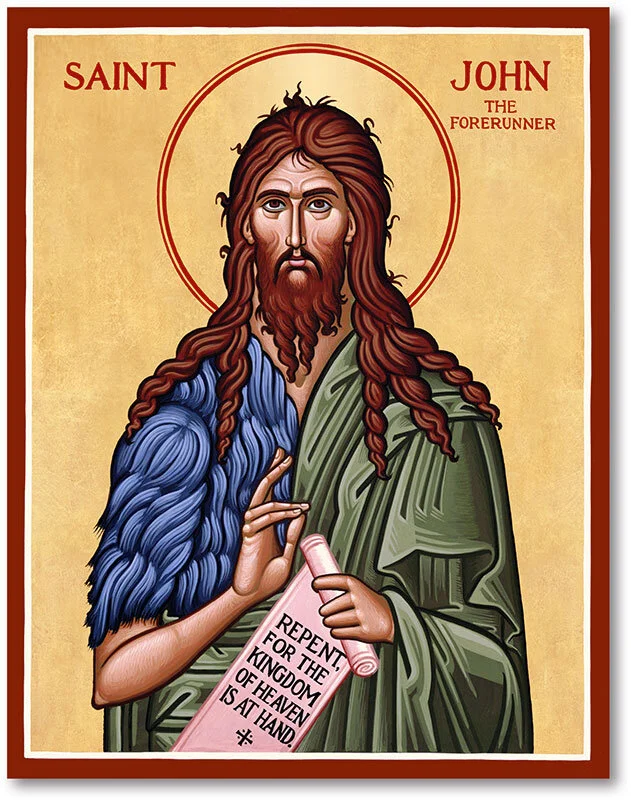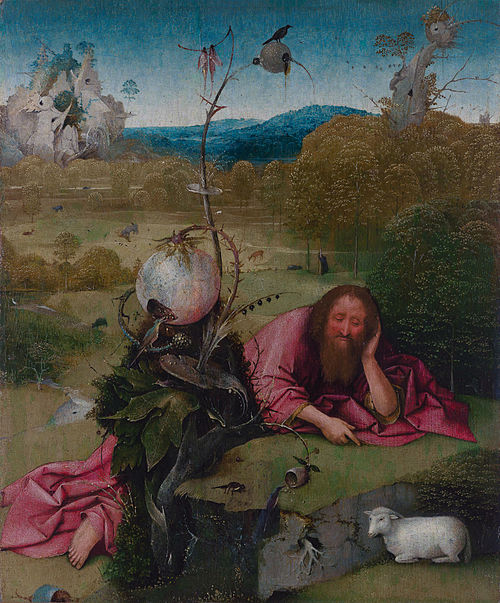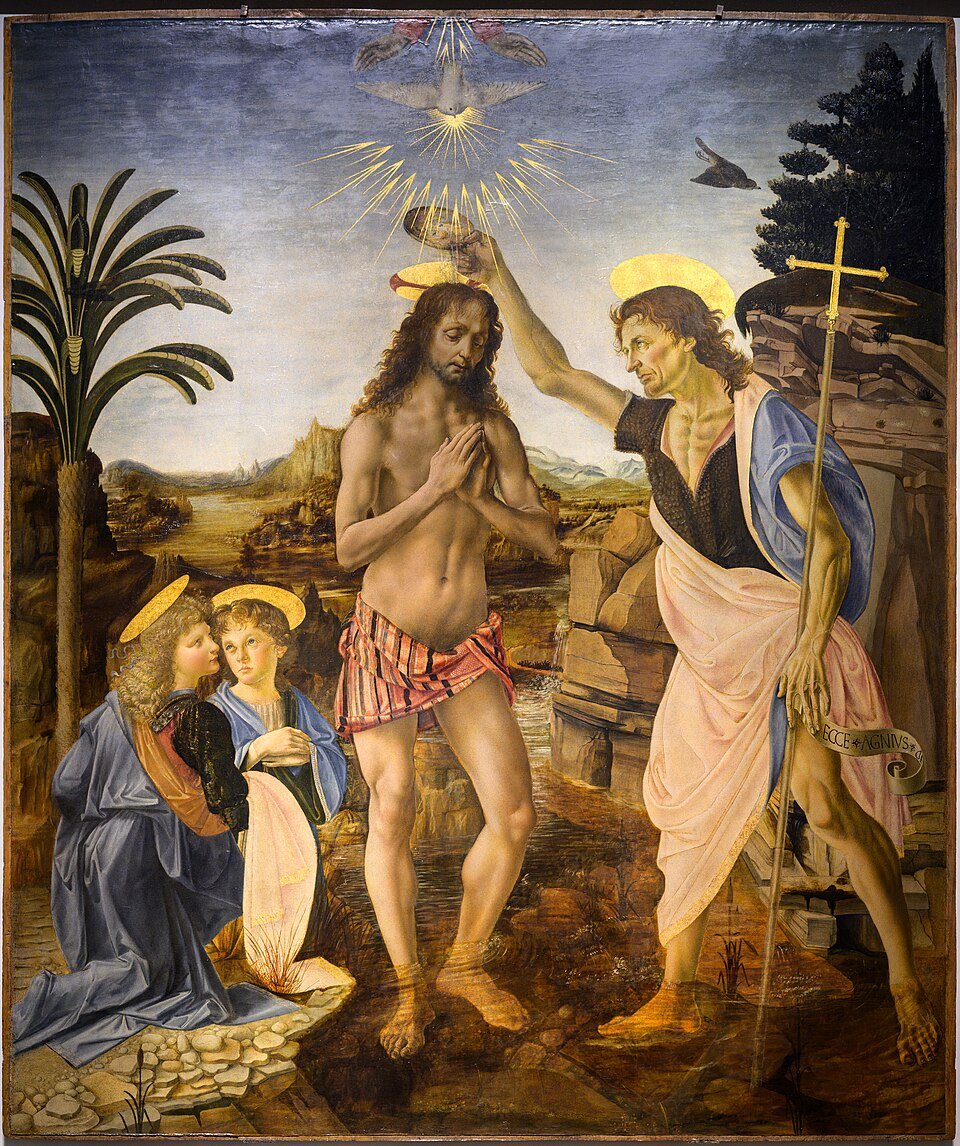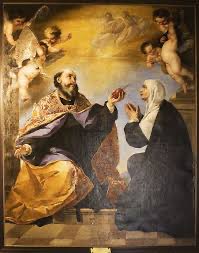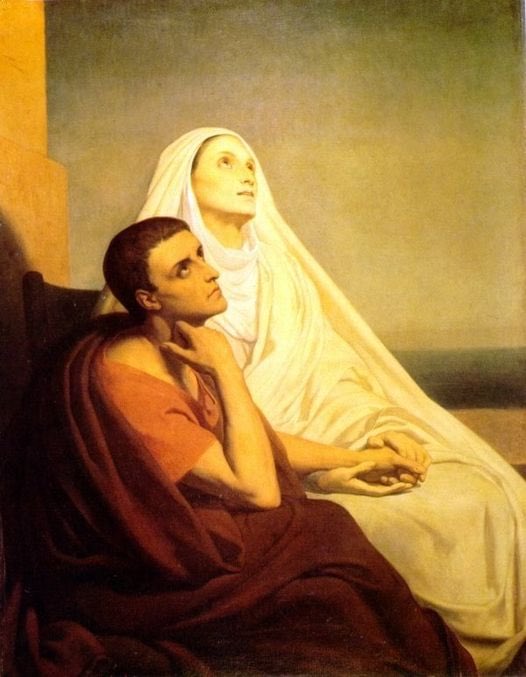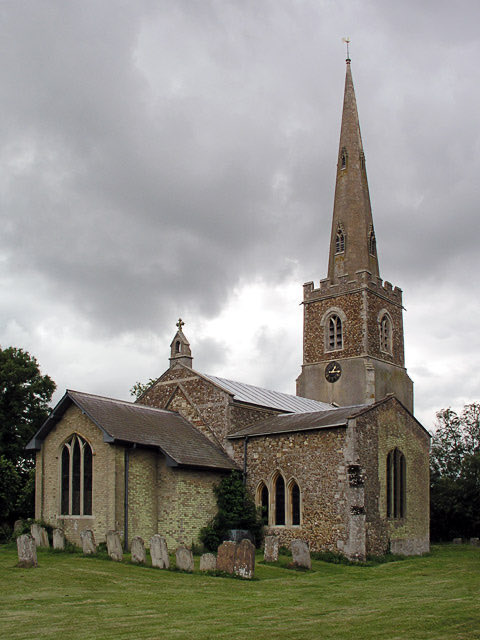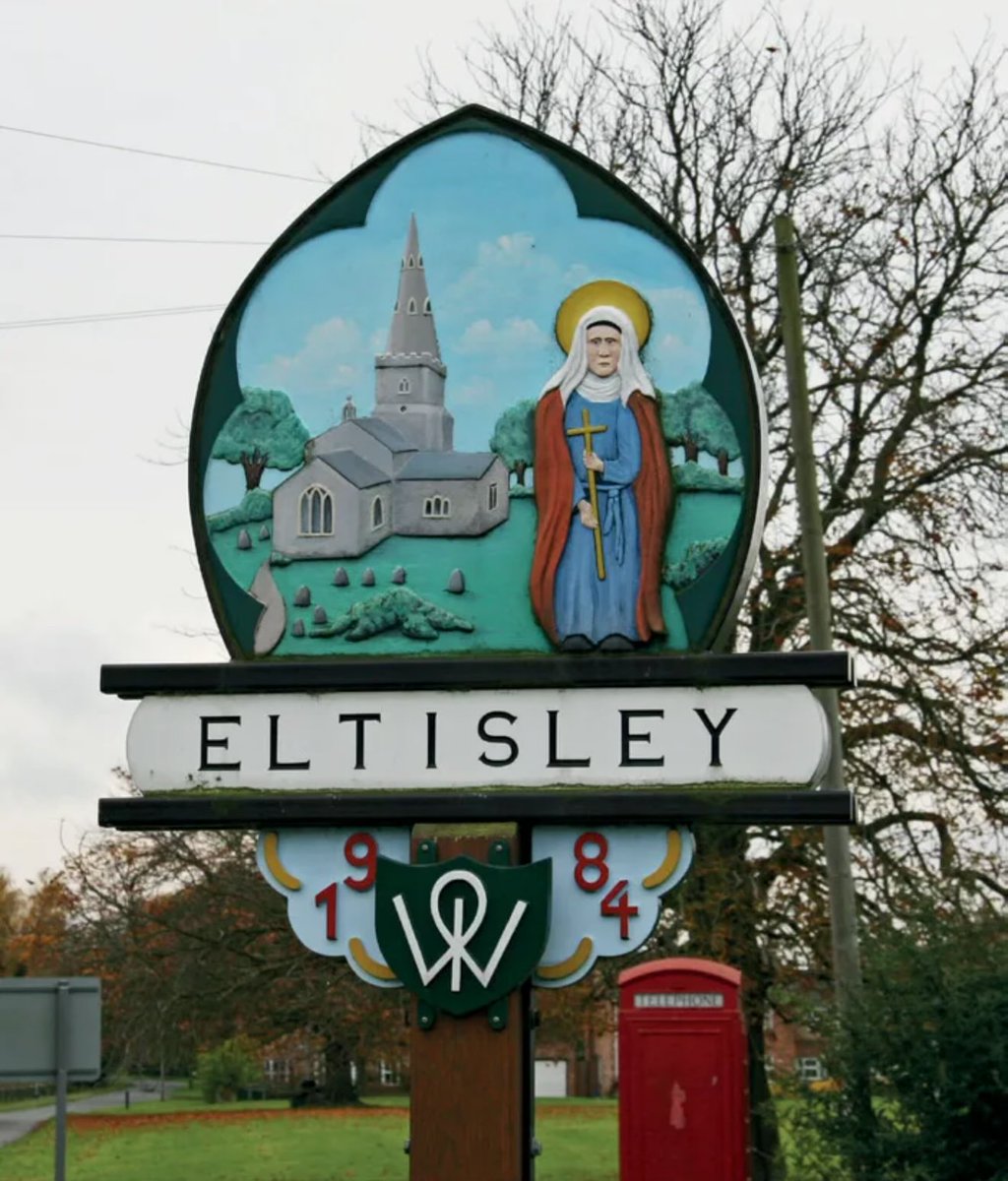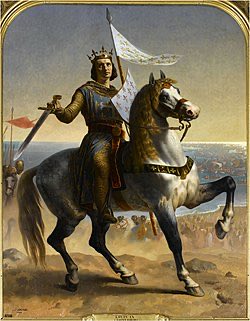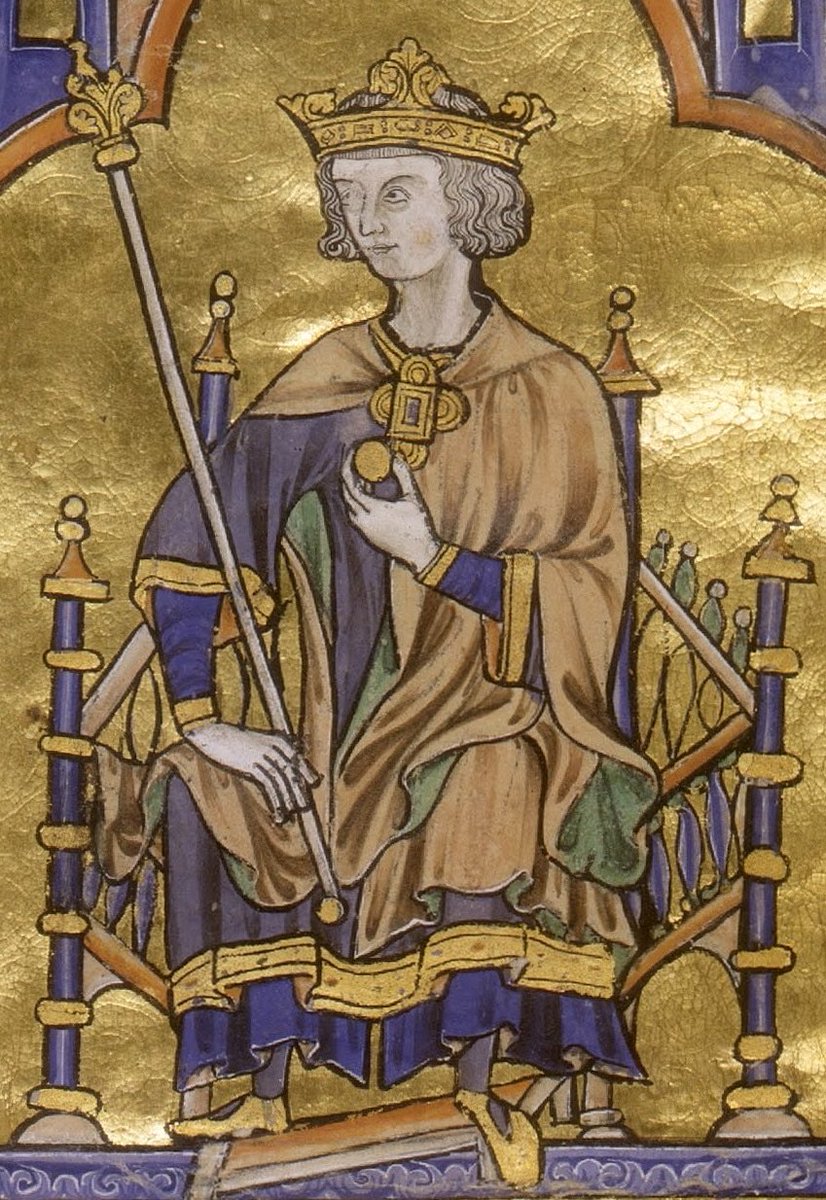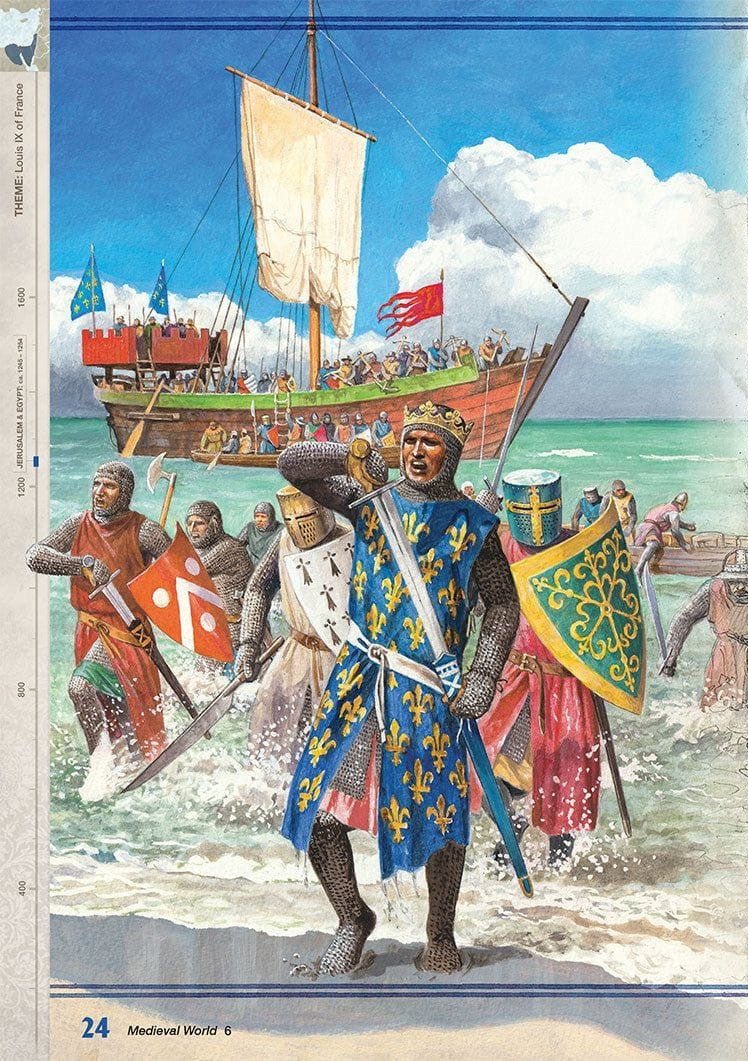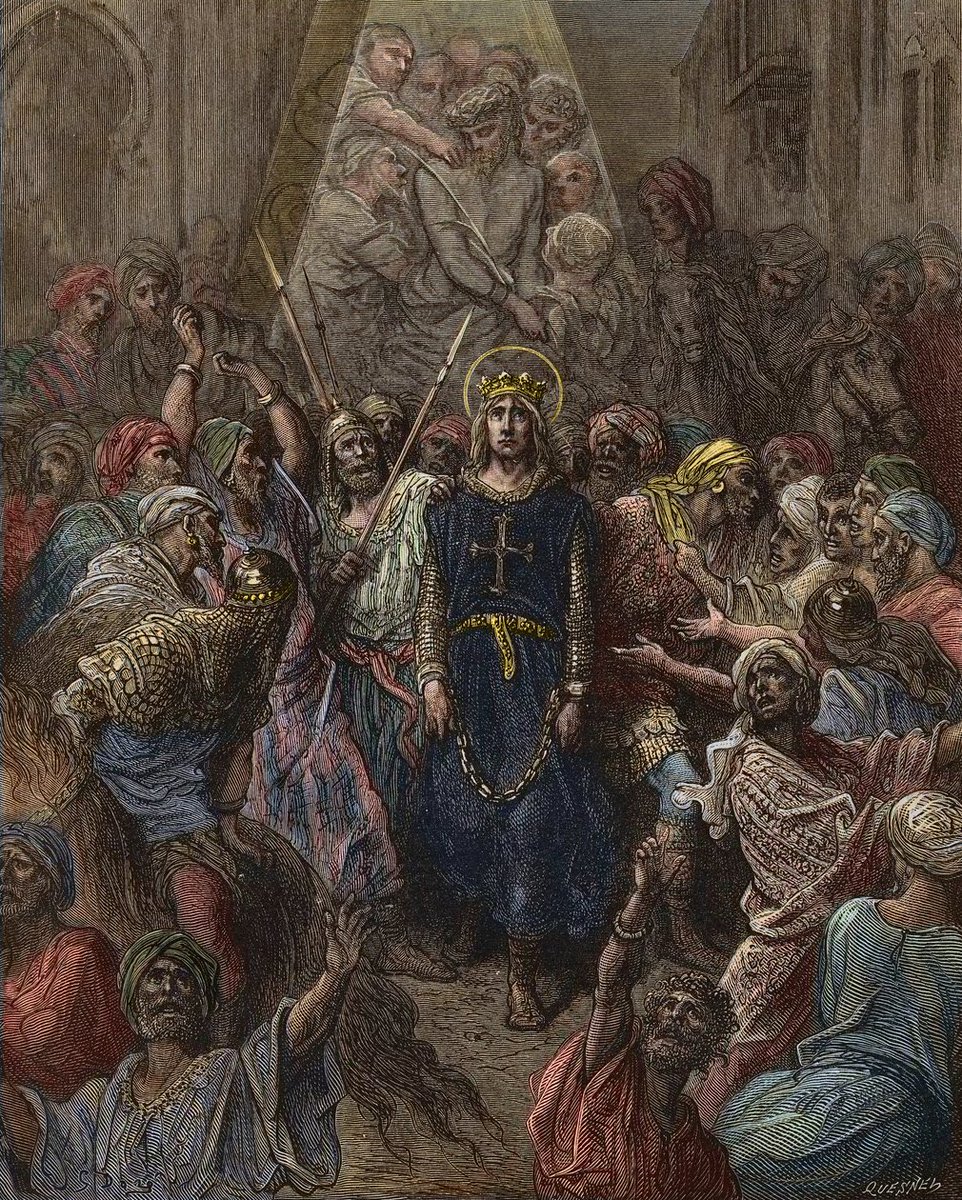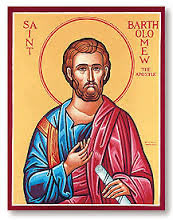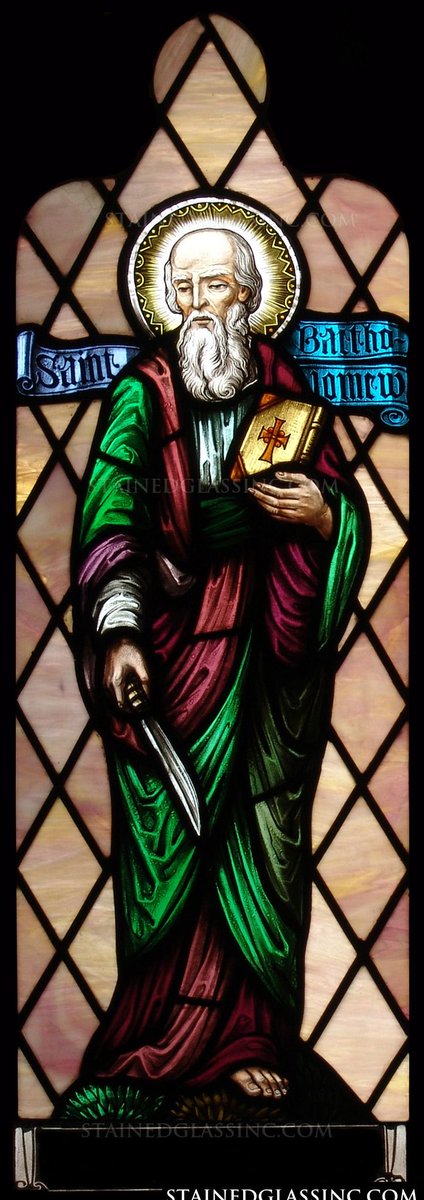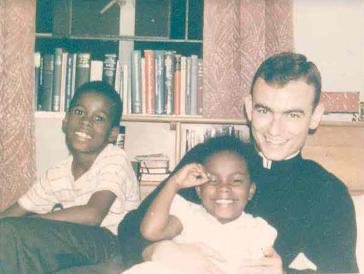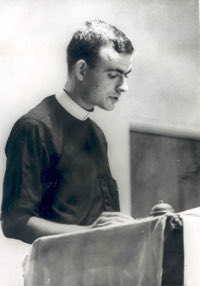✝️In today's Daily Office, we remember Augustine, Bishop of Hippo and Teacher of the Faith.
A 🧵
Augustine of Hippo (354-430) was a renowned theologian, philosopher, and bishop in North Africa who profoundly shaped Western Christian thought through his influential writings on topics like original sin, divine grace, and the Church, becoming one of the most important Church Fathers and a Doctor of the Church.
"Thou hast made us for thyself, O Lord, and our heart is restless until it finds its rest in thee."
- Augustine of Hippo
A 🧵
Augustine of Hippo (354-430) was a renowned theologian, philosopher, and bishop in North Africa who profoundly shaped Western Christian thought through his influential writings on topics like original sin, divine grace, and the Church, becoming one of the most important Church Fathers and a Doctor of the Church.
"Thou hast made us for thyself, O Lord, and our heart is restless until it finds its rest in thee."
- Augustine of Hippo
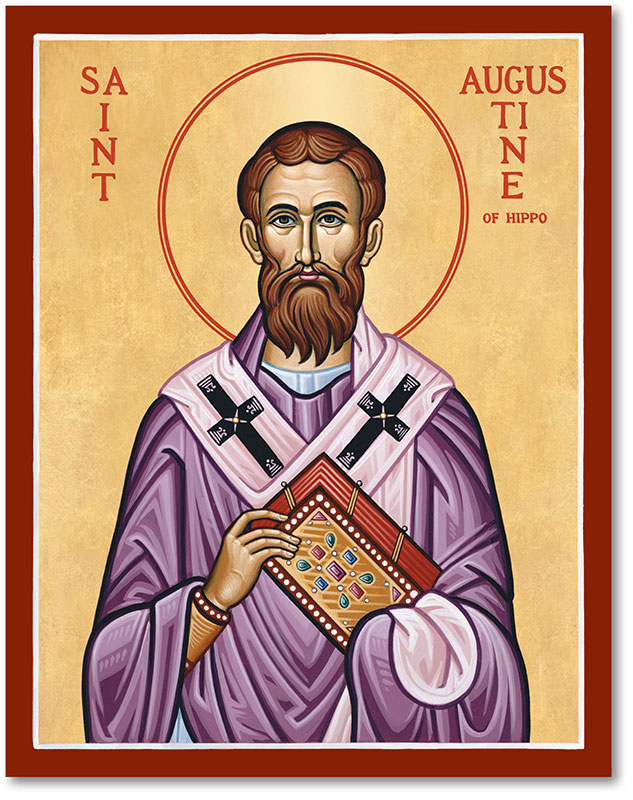
2/
Augustine converted to Christianity at age 32 after a spiritual journey, becoming Bishop of Hippo in 395 and serving until his death in 430.
His conversion was brought about by Saint Monica, his mother.
Augustine converted to Christianity at age 32 after a spiritual journey, becoming Bishop of Hippo in 395 and serving until his death in 430.
His conversion was brought about by Saint Monica, his mother.
https://x.com/sjsjchurch/status/1960667810759074036?s=46&t=QfENL1TYOnuNzuabuU5xdA
3/
He wrote influential works like "Confessions" and "City of God," shaping Western Christian theology and philosophy.
Augustine developed doctrines on original sin, divine grace, and predestination, significantly impacting both Catholic and Protestant thought.
He wrote influential works like "Confessions" and "City of God," shaping Western Christian theology and philosophy.
Augustine developed doctrines on original sin, divine grace, and predestination, significantly impacting both Catholic and Protestant thought.
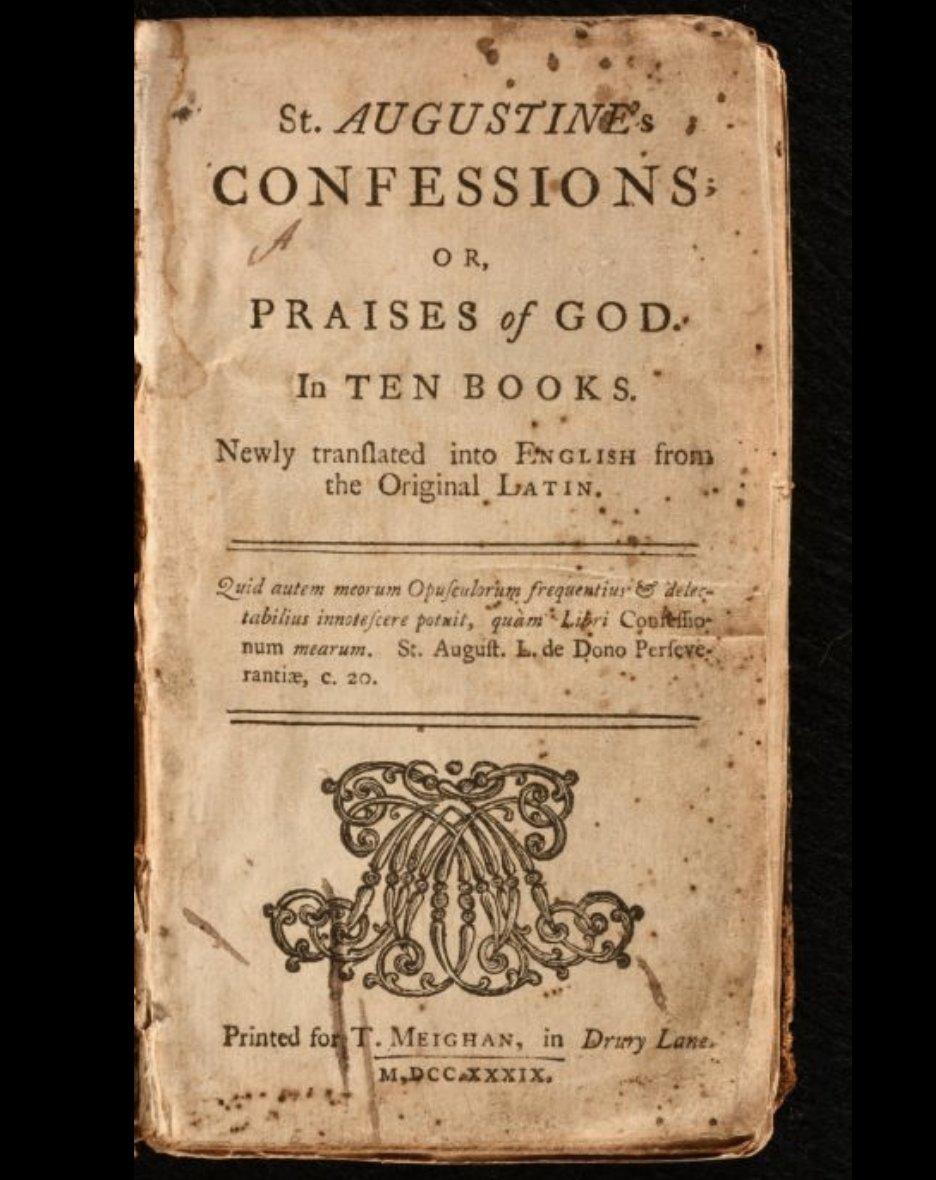
4/
He championed the concept of the "invisible Church" comprising true believers known only to God, countering the Donatist heresy.
Augustine promoted a monastic lifestyle, establishing religious communities focused on prayer, work, and fellowship.
He championed the concept of the "invisible Church" comprising true believers known only to God, countering the Donatist heresy.
Augustine promoted a monastic lifestyle, establishing religious communities focused on prayer, work, and fellowship.
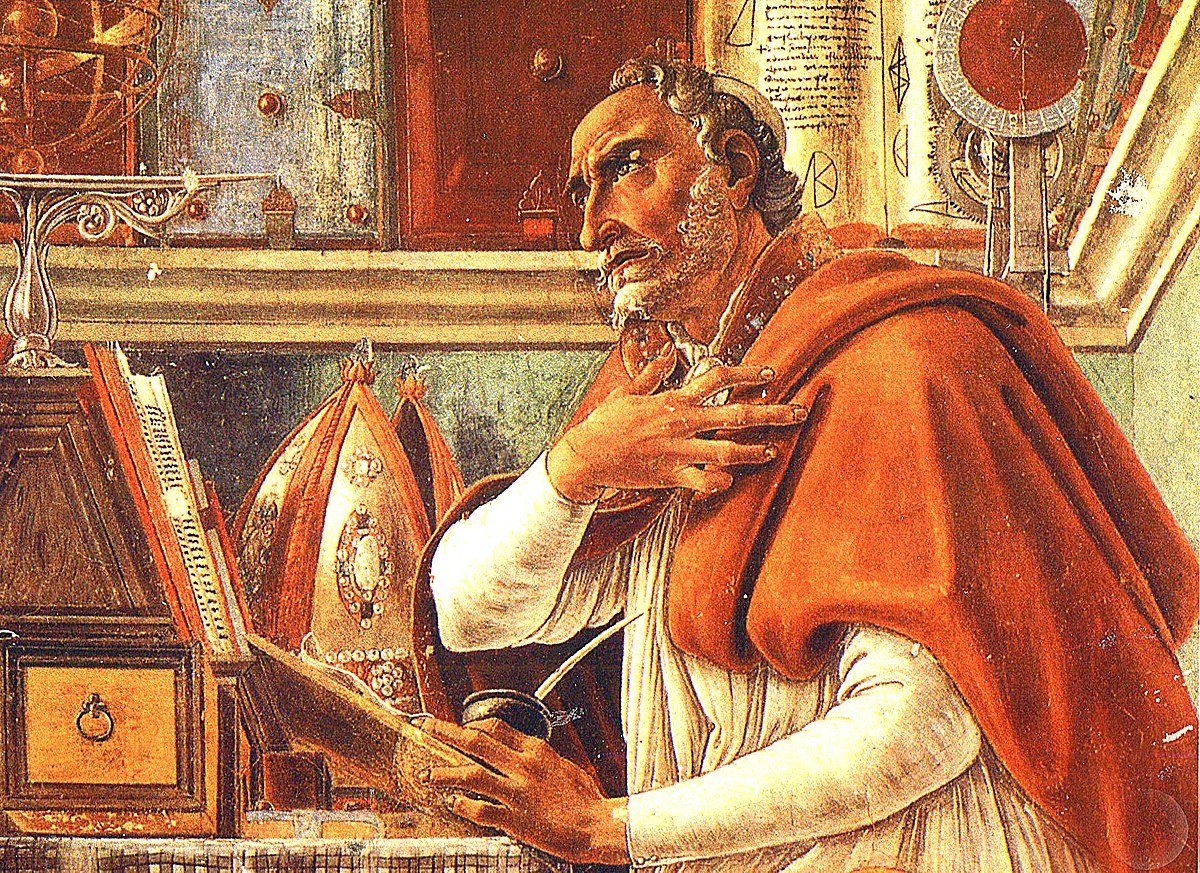
5/
His pastoral work, preaching, and writings addressed practical Christian living and deeply influenced medieval and modern Christianity.
His pastoral work, preaching, and writings addressed practical Christian living and deeply influenced medieval and modern Christianity.

6/
📖Prayers, readings and hymns:
– Opening Prayer from the Liturgy of the Hours for the Saint Augustine Feast Day
– “Confessions” by St. Augustine (excerpts read aloud)
– Readings from St. Augustine at mass, especially his homilies or writings like “City of God”
– The Nicene Creed, which Augustine helped promote across the Church
– “Te Deum” in honor of St. Augustine’s life and sanctity
– “Prayer to St. Augustine” seeking his intercessory prayers
– “Oh Happy Day When Augustine Came” hymn referring to his conversion
– “Fount of Wisdom, St. Augustine” hymn praising his holy wisdom
– Singing the introit “In the midst…” from St. Augustine’s mass
– Concluding prayer like the “Oratio S. Augustini” for the Saint Augustine Feast Day
(via wearesaintly.com/saint-augustin…)
📖Prayers, readings and hymns:
– Opening Prayer from the Liturgy of the Hours for the Saint Augustine Feast Day
– “Confessions” by St. Augustine (excerpts read aloud)
– Readings from St. Augustine at mass, especially his homilies or writings like “City of God”
– The Nicene Creed, which Augustine helped promote across the Church
– “Te Deum” in honor of St. Augustine’s life and sanctity
– “Prayer to St. Augustine” seeking his intercessory prayers
– “Oh Happy Day When Augustine Came” hymn referring to his conversion
– “Fount of Wisdom, St. Augustine” hymn praising his holy wisdom
– Singing the introit “In the midst…” from St. Augustine’s mass
– Concluding prayer like the “Oratio S. Augustini” for the Saint Augustine Feast Day
(via wearesaintly.com/saint-augustin…)
7/
🚶🏻⛪️Main pilgrimage sites:
– The Basilica di San Pietro in Ciel d’Oro in Pavia, Italy where St. Augustine’s remains are interred and venerated in an elaborate shrine. Many miracles have been reported here.
– The Cathedral of St. Augustine in Annaba, Algeria which contains some relics and sits near the site of ancient Hippo Regius where he served as bishop.
– The Church of St. Augustine in Rome which contains artwork depicting him and a portion of his right arm as a relic.
– The Abbey of Saint Augustine in Canterbury, England which was constructed around converts sent by St. Augustine.
– St. Augustine Shrine and Missionary Institute in Ann Arbor, Michigan centering veneration in the New World.
– Basilica St Augustinus in Antwerp, Belgium with elaborate paintings and relics of the saint.
– St. Augustine Chapel in Vienna, Austria where the imperial Habsburg Dynasty venerated his relics.
(via wearesaintly.com/saint-augustin…)
🚶🏻⛪️Main pilgrimage sites:
– The Basilica di San Pietro in Ciel d’Oro in Pavia, Italy where St. Augustine’s remains are interred and venerated in an elaborate shrine. Many miracles have been reported here.
– The Cathedral of St. Augustine in Annaba, Algeria which contains some relics and sits near the site of ancient Hippo Regius where he served as bishop.
– The Church of St. Augustine in Rome which contains artwork depicting him and a portion of his right arm as a relic.
– The Abbey of Saint Augustine in Canterbury, England which was constructed around converts sent by St. Augustine.
– St. Augustine Shrine and Missionary Institute in Ann Arbor, Michigan centering veneration in the New World.
– Basilica St Augustinus in Antwerp, Belgium with elaborate paintings and relics of the saint.
– St. Augustine Chapel in Vienna, Austria where the imperial Habsburg Dynasty venerated his relics.
(via wearesaintly.com/saint-augustin…)
8/
🙌🏽Traditions:
🇮🇹Italy: Processions with statues of St. Augustine through streets, followed by special masses
🇩🇿Algeria: Pilgrimage to ruins of Hippo Regius, Augustine's former bishopric
🇵🇭Philippines: Blessing and distribution of small loaves of "St. Augustine bread" after Mass
🇺🇸United States: Augustine-themed lectures and symposiums at Catholic universities
🇪🇸Spain: Lighting candles before images of St. Augustine in churches
🏴England: Evensong services featuring Augustine's writings at Anglican cathedrals
🙌🏽Traditions:
🇮🇹Italy: Processions with statues of St. Augustine through streets, followed by special masses
🇩🇿Algeria: Pilgrimage to ruins of Hippo Regius, Augustine's former bishopric
🇵🇭Philippines: Blessing and distribution of small loaves of "St. Augustine bread" after Mass
🇺🇸United States: Augustine-themed lectures and symposiums at Catholic universities
🇪🇸Spain: Lighting candles before images of St. Augustine in churches
🏴England: Evensong services featuring Augustine's writings at Anglican cathedrals
9/
🍽️Foods:
🐟Malta has festive meals including fish, vegetables, and wine - foods associated with Augustine
🌍Algerian couscous dishes, reflecting Augustine's North African roots
🍷Roman foods like olives, bread, and wine, as Augustine was a Roman citizen
🥜Fish, vegetables, nuts and wine, thought to be Augustine's favorites
🍞Small loaves of "St. Augustine bread" or rolls, blessed and distributed in some churches
🥙Italian procession foods and festive meals
🍽️Foods:
🐟Malta has festive meals including fish, vegetables, and wine - foods associated with Augustine
🌍Algerian couscous dishes, reflecting Augustine's North African roots
🍷Roman foods like olives, bread, and wine, as Augustine was a Roman citizen
🥜Fish, vegetables, nuts and wine, thought to be Augustine's favorites
🍞Small loaves of "St. Augustine bread" or rolls, blessed and distributed in some churches
🥙Italian procession foods and festive meals
10/
🙏🏻
O Almighty God,
who didst give to thy servant
Augustine of Hippo special gifts of grace
to understand and teach the truth
as it is in Christ Jesus:
Grant, we beseech thee,
that by this teaching we may know thee,
the one true God,
and Jesus Christ whom thou hast sent;
and who liveth and reigneth with thee,
in the unity of the Holy Ghost,
ever one God,
world without end.
Amen.
🙏🏻
O Almighty God,
who didst give to thy servant
Augustine of Hippo special gifts of grace
to understand and teach the truth
as it is in Christ Jesus:
Grant, we beseech thee,
that by this teaching we may know thee,
the one true God,
and Jesus Christ whom thou hast sent;
and who liveth and reigneth with thee,
in the unity of the Holy Ghost,
ever one God,
world without end.
Amen.
To find out more:
👉🏻dailyoffice2019.com/commemorations…
👉🏻dailyoffice2019.com/commemorations…
🚨We’re a church without a building right now.
🙋🏻♂️Can you help us?
⛪️We can do so much more to bring people to Jesus and to serve the community if we had a building of our own.
🥅Please donate or share to reach our goal.
Thank you.
🙏🏻
👉🏻 democracythree.org/saveachurch
🙋🏻♂️Can you help us?
⛪️We can do so much more to bring people to Jesus and to serve the community if we had a building of our own.
🥅Please donate or share to reach our goal.
Thank you.
🙏🏻
👉🏻 democracythree.org/saveachurch
@threadreaderapp unroll
• • •
Missing some Tweet in this thread? You can try to
force a refresh


